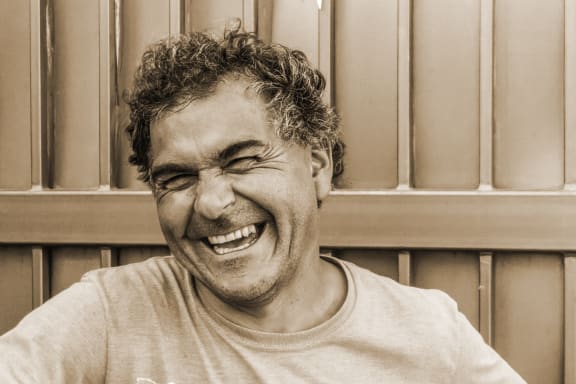
Photo: glebsokolov / 123RF
Many of us feel pushed around by life and make it through our days with a sense of hollowness inside, says psychologist and author Rick Hanson.
What we're missing, he says, is resilience – a "calm strength" within that can't be shaken, a sense of 'I can deal with this'.
We need resilience not only to bounce back from big setbacks but also to deal with daily stress and raising a family, so how do we get more if it?

Photo: Supplied
No-one can stop us from becoming more resilient and no-one can do it for us, Hanson says.
After what he calls a "C-minus childhood", he "landed in adulthood with what felt like a huge hole in my heart."
In his late teens, Hanson discovered three simple but powerful things he could every day to help himself feel better:
-
Notice when you're feeling something pleasant – like a sense of being safe, satisfied or connected.
-
Stay with that "for a breath or two or three" and try to feel it in your body as much as possible: "rather than doing what so many of us do - blaze right on past a good fact without feeling anything".
-
Focus on what's rewarding about the experience, take that "good stuff" into yourself and let it sink in.
Hanson says it's taken him many years to understand – as science has developed – that what he discovered as a teenager was a kind of "self-directed neuroplasticity".
Human evolution has left us with brains that are "like Velcro for bad experiences and Teflon for good experiences", Hanson says.
"If you think about moving through the day, what tends to stick to you and what tends to slide right off? Hassles with others, self-criticism … that stuff does tend to stick."

Photo: Richard James / Unsplash
But while a negativity bias can be helpful in a combat zone or growing up in what feels like a combat zone, for most people this tendency only results in everyday stress and frustration sinking into and gradually become woven into our being.
In a process not unlike building a physical muscle, focusing on everyday beneficial experiences can help us develop inner resources for dealing with negative things, Hanson says.
If you increase the "internalisation" of an experience like determination or calm strength, over time that feeling will become more like a personality trait, he says.
"If you're doing something where you feel determined – it could be a yoga pose, lifting a weight or dealing with someone that's aggravating – slow down and be mindful of the experience of determination. [Then] you will keep the neurons firing that are the basis of that experience."

Photo: Kuo-Chiao Lin / Unsplash
Beneficial experiences are usually enjoyable, he says.
"Their enjoyability is usually a marker that they will not just feel good but be good for you."

Conscious breathing can be a helpful tool for "feeling the good feelings" as you're having them, Hanson says.
"Stay with it for a breath or two or three. Feel it in your body and be aware of what's rewarding about it.
"In the process of that … we actually can fill ourselves each day from the inside out.
"It's not a quick fix, it's a gradual process of change for the better."
Rick Hanson's latest book is Resilient: How to Grow an Unshakable Core of Calm, Strength, and Happiness.
In 2014 he talked with Wallace Chapman about his 2013 best-seller Hardwiring Happiness.

